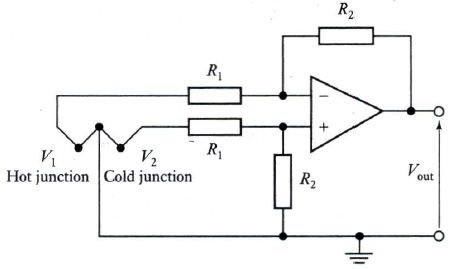Reference no: EM1387494
1. What is an IC? What are its special features? Why is it so commonly used in electronic circuits?
2. What are the essential features of an ideal op amp? Identify the terminals of an op amp. Draw its equivalent circuit. Define virtual ground.
3. Draw circuits of
(a) inverting amplifier
(b) non-inverting amplifier
(c) summer amplifier.
4. What is difference amplifier? Draw its circuit. Define C.M.R.R.
5. How can integrating and differentiating circuits be realized using op amps? Draw the configurations.
6. Devise an op amp circuit to multiply two signals X and Y.
7. Design an operational amplifier circuit that can be used to produce an output that ranges from 0 to - 5 V when the input goes from 0 to 100 m V.
8. An inverting amplifier has an input resistance of 2 kilo. Determine the feed- back resistance needed to give a voltage gain of 100.
9. Design a summing amplifier circuit that can be used to produce an output that ranges from -1 to - 5 V when the input goes from 0 to 100 m V.
10. A differential amplifier is used with a thermocouple sensor in the way shown in Figure 4. What values of R1 and R2 would give a circuit which has an output of
10 mV for a temperature difference between the thermocouple junctions of 100°C with a copper-constantan thermocouple if the thermocouple is assumed to have a constant sensitivity of 43 µV/oC?

Figure. Differential Amplifier with thermocouple
11. The output from the differential pressure sensor used with an orifice plat for the measurement of flow rate is non-linear, the output voltage being proportional to the square of the flow rate. Determine the form of characteristic required for the element in the feedback loop of an operational amplifier signal conditioner circuit in order to linearise this output.
12. A differential amplifier is to have a voltage gain of 100. What will be the feedback resistance required if the input resistances are both 1 kilo ohm?
13. A differential amplifier has a differential voltage gain of 2000 and a common mode gain of 0.2. What is the common mode rejection ratio in dB?
14. Digital signals from a sensor are polluted by noise and mains interference and are typically of the order of 100 V or more. Explain how protection can be afforded for a microprocessor to which these signals are to be inputted.
15. A platinum resistance temperature sensor has a resistance of 120 ? at O°C and forms one arm of a Wheatstone bridge. At this temperature the bridge is balanced with each of the other arms being 120 ?. The temperature coefficient of resistance of the platinum is 0.0039/K. What will be the output voltage from the bridge for a change in temperature of 20°C? The loading across the output is effectively open circuit and the supply voltage to the bridge is from a source of 6.0 V with negligible internal resistance.
16. An op amp circuit has a slew rate of 0.5 V/µs. If the input signal has a peak value of 8 V and a frequency of 8 kHz, will slew rate distortion occur?